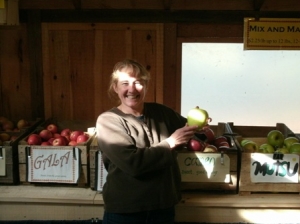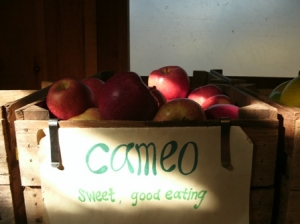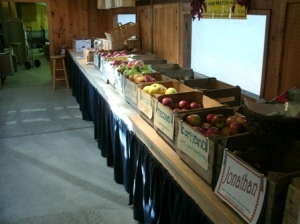The Fruits of CO-OPeration
 For members of the Doylestown Food Co-Op, March 22nd was a special day. That was the day of their Grand Opening, the culmination of many years hard work and planning. Their first Grand Opening had been delayed by power outages caused by the February 6th ice storm, making it that much more special.
For members of the Doylestown Food Co-Op, March 22nd was a special day. That was the day of their Grand Opening, the culmination of many years hard work and planning. Their first Grand Opening had been delayed by power outages caused by the February 6th ice storm, making it that much more special.
“So many people put so much effort into our re-scheduled Grand Opening,” says the co-op’s Vice President and Product Manager, Neal Carson. “I’m sure there was some trepidation, but we were confident in our preparation. The outcome exceeded all of our expectations. It was a record-breaking day of sales for us, and 10 new members joined the co-op.”
The co-op’s roots trace back to September 2009 when residents first opened a food club to provide access to locally-raised and -produced goods. It was such a popular idea that a few short months later they started planning a bricks and mortar location. Though it was not until spring of 2013 that they had enough vested membership to make the move into their current home on 29 West State Street.
“The amount of member volunteer hours that went into starting our store is incalculable,” Neal says. “When we took occupancy in September 2013, the real work began, including the design of the store, literally hundreds of hours of demo and construction, the equipment research/purchase/installation, the product planning and establishment of accounts and delivery schedules, the staff interviews and hiring, and the procurement and setup of our POS system. I guess you could say it was hard, but I think I could speak for everyone when I say that the reward for all who contributed was well worth it.”
With over 430 members, the co-op is off to a great start. Members and non members alike can choose from an array of delicious, local purveyors: Dale’s Raw Bars, Eat This, Giggling Goat, Applegate, Castle Valley, Seven Stars, Fanciful Fox, Solebury Orchards, and, of course, Blue Moon Acres. Members enjoy daily discounts and specials, quarterly member appreciation shopping discounts, and great deals on goods and services at over 40 local shops and restaurants.
“Events like our recent Local Live concert and our August Farm-to-Table Dinner bring people together to celebrate our shared values,” Neal says. “Educational events, such as our Farm Fresh Film Series at the County Theater and our Food For Thought Book Club at the Doylestown Bookshop, help to involve and educate our greater community. We feel that we are all working together to begin a store that will influence and affect our Doylestown and Bucks County area in positive ways for many years to come.”
The Co-Op is open Tuesday through Friday from 10 to 7, Saturday 10 to 6, and Sunday 11 to 5.






